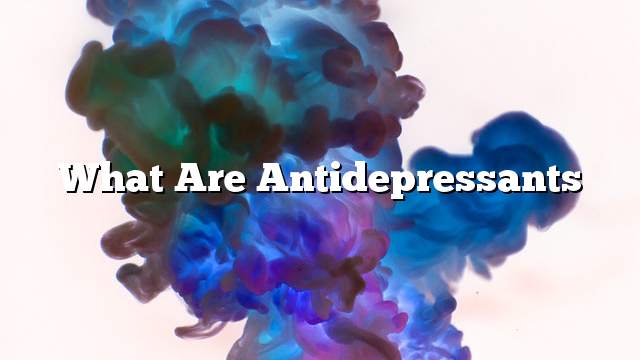Antidepressants
Antidepressants can be defined as drugs that treat the manifestations of depression. They have been developed in 1950 and have spread since then. Today there are about 30 types of antidepressants. They are divided into four basic types: tricyclic antidepressants , Selective serotonin reuptake inhibitors, serotonin reuptake inhibitors and noradrenaline, as well as monoamine oxidase inhibitors.
How Antidepressants Work
It is believed that such drugs work by increasing the activity of some chemicals within the human brain, as these substances are known as neurotransmitters, as these carriers send signals from one of the brain cells to other cells, and it plays an important role in depression, which is known Serotonin and noradrenaline.
Diseases that use antidepressants
- Diseases of moderate and severe depression as well.
- Serious anxiety, in addition to panic attacks.
- Obsessive Compulsive Disorder.
- Chronic pain.
- Eating disorders.
- Stress disorder, especially after a shock in human life.
- Stomach disorder.
- Flu-like symptoms.
- Anxiety.
- Rotor.
- The intense dreams that man experiences during the night.
- Body sensation that looks like electric shocks.
- Note: It should be noted that the patient does not need to increase the alarm until it has a multiplier effect, as well as the patient will not suffer from the desire to eat if it was stopped.
Do antidepressants cause addiction
Antidepressants are not addictive. They are not tranquilizers, alcohol or even nicotine, but it is believed that people who stop taking them may suffer from a range of withdrawal symptoms.
How to Take Antidepressants
You should see your doctor during the first few weeks. It is recommended to start with a small dose, then increase within weeks. Here are some recommended tips for taking antidepressants:
- Avoid stopping treatment if the patient has some side effects; most of them disappear within a few days.
- Avoid stopping discs if the side effects are not possible, and you should visit your doctor as soon as possible.
- These medications and antibiotics are daily. Antibiotics may not work immediately, as most people may need up to one or two weeks to take effect.
- Continue to take the medicine and not stop early; the common cause of the lack of improvement of patients is to stop taking the drug without consulting a doctor.
- Avoid alcohol, as it aggravates depression, making it worse, it increases the feeling of dizziness in the patient.
- Keep these medicines out of the reach of children.
